Doctor en nutrición y producción de Rumiantes de la Universidad Federal de Lavras (Brasil) y Zootecnista de la Universidad de Sucre. Linea de investigación en programación fetal. Interesado en entender como vacas lidan con la restricción nutricional durante la gestación para soportar el crecimiento fetal. Por tal razón he trabajado en conocer los cambios específicos de las matrices durante la gestación, así como los factores que contribuyen al lento crecimiento y desarrollo embrionario. El conocimiento obtenido por medio de está línea de investigación ayudará a los investigadores y/o productores a identificar estrategias e intervenciones de manejo para aumentar la eficiencia reproductiva y mitigar las posibles pérdidas de producción asociadas con las consecuencias de programar la descendencia a través del entorno materno en todas las especies de interes zootecnico. Experiencia también en alimentos y alimentación y producción de bovinos en sistemas silvopastoriles.
PROGRAMA: Medicina Veterinaria y Zootecnia (Cartagena)
CATEGORÍA MINCIENCIAS:
NIVEL DE FORMACIÓN: Doctorado
LINEAS DE TRABAJO:
PRODUCTOS DESTACADOS
Heat stress influence the microbiota and organic acids concentration in beef cattle rumen
Fecha de publicación: 01/04/2021
The objective of this study was to evaluate the effect of heat stress on meta-taxonomic and metabolic profiles of prokaryotes in beef cattle rumen. Six pure-breed Nellore heifers with ruminal cannulas were used in the study. Six treatments were tested in a 6 × 6 Latin Square with six periods of 21days. The treatments were evaluated in a 2 × 2 + 2 factorial arrangement, consisting of 4 combinations: two temperatures conditions (thermoneutral, TN: 24 °C; and heat stress, HS: 34 °C) and two dietary energy concentration [low-energy (37% non-fibrous carbohydrates – NFC, 12 Mcal of metabolizable energy per kg of dry matter) or high-energy concentration (50.5% NFC, 18.49 Mcal of metabolizable energy per kg of dry matter)] plus two additional treatments with animals maintained in TN conditions but with your intake restricted (TN-RI) to the same of the heifers in HS with the two dietary energy concentration.
Más información ⇨
- « Anterior
- 1
- …
- 7
- 8
- 9
- 10
- 11
- …
- 14
- Siguiente »

